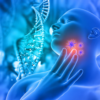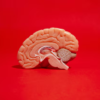Understanding Anorexia Nervosa Through Ayurveda: A Holistic Approach to Recovery
Understanding Anorexia Nervosa Through Ayurveda: A Holistic Approach to Recovery is a complex eating disorder characterized by an intense fear of gaining weight, distorted body image, and severe restriction of food intake. It affects individuals physically, emotionally, and socially, leading to serious health complications. While conventional treatments focus on medical and psychological interventions, Ayurveda offers a holistic perspective that addresses the root causes of this disorder. In this blog, we will explore the principles of Ayurveda and how they can support individuals suffering from anorexia nervosa.
What is Anorexia Nervosa?

Understanding Anorexia Nervosa Through Ayurveda: A Holistic Approach to Recovery is often associated with a range of psychological issues, including anxiety, low self-esteem, and perfectionism. Those affected may exhibit extreme behaviors, such as excessive exercising, severe calorie restriction, and preoccupation with food and body weight. The consequences of anorexia are severe and can include malnutrition, osteoporosis, heart issues, and even death.
Understanding the condition is crucial for effective treatment. While psychotherapy and nutritional counseling are key components, integrating holistic practices can enhance recovery and well-being.
Ayurveda: An Overview
Ayurveda is an ancient system of medicine that originated in India over 3,000 years ago. It emphasizes balance in the body, mind, and spirit, promoting wellness through natural means. The foundation of Ayurveda rests on three doshas—Vata, Pitta, and Kapha—each representing different combinations of the five elements: earth, water, fire, air, and ether.
- Vata is associated with movement and change.
- Pitta governs transformation and metabolism.
- Kapha represents structure and stability.
An individual’s health is determined by the balance of these doshas. Anorexia nervosa can be viewed through this lens, as it often involves imbalances in the doshas, particularly Vata and Kapha.
The Ayurvedic Perspective on Anorexia
Vata is responsible for the body’s physiological functions, including digestion, circulation, and nerve function. When Vata is out of balance, it can lead to anxiety, fear, and erratic eating behaviors.
Dosha Imbalances and Anorexia
- Vata Imbalance: Individuals with anorexia often experience heightened anxiety and fear, which can stem from an excess of Vata. This imbalance can lead to restlessness, insomnia, and digestive issues. The fear of weight gain may further exacerbate Vata’s qualities, leading to more restrictive behaviors.
- Kapha Imbalance: In some cases, a dominance of Kapha can lead to lethargy and attachment issues. Individuals may struggle with low energy and motivation, resulting in unhealthy eating habits. The desire for control over one’s body can stem from Kapha’s qualities of stability and resistance to change.
- Pitta Factors: While Pitta is less often associated directly with anorexia, those with strong Pitta traits may experience perfectionism and high standards. This can lead to rigid food choices and an unhealthy relationship with one’s body.
Ayurvedic Treatment Approaches for Anorexia
Ayurveda offers a multifaceted approach to treating anorexia nervosa that includes dietary changes, herbal remedies, lifestyle modifications, and mental wellness practices.
1. Dietary Recommendations
A key aspect of Ayurvedic treatment is diet, which is personalized based on an individual’s dosha imbalance.
- Nourishing Foods: Incorporate warm, cooked foods that are easy to digest, such as soups, stews, and grains. This can help pacify Vata and provide nourishment.
- Healthy Fats: Include healthy fats like ghee, avocados, and nuts, which can help build strength and vitality.
- Spices: Utilize digestive spices like ginger, cumin, and coriander to enhance digestion and appetite.
- Regular Meals: Establishing a routine with regular meal times can help regulate Vata and promote a sense of stability.
2. Herbal Remedies
Ayurveda employs various herbs to support recovery:
- Ashwagandha: Known for its adaptogenic properties, ashwagandha can help reduce anxiety and stress while promoting appetite.
- Shatavari: This herb is considered a rejuvenating tonic, especially for women, and can support hormonal balance and emotional well-being.
- Triphala: A traditional herbal formulation that aids digestion and detoxification, triphala can help restore digestive health.
3. Lifestyle Modifications
Incorporating healthy lifestyle practices is essential for recovery:
- Routine: Establishing a daily routine can help provide structure and predictability, reducing anxiety levels.
- Gentle Exercise: Rather than engaging in excessive exercise, opt for gentle forms of movement like yoga, which can promote body awareness and relaxation.
- Mindfulness Practices: Techniques such as meditation, breathing exercises, and yoga can help manage stress and improve self-acceptance.
4. Emotional and Spiritual Healing
Ayurveda recognizes the importance of emotional and spiritual well-being in the healing process:
- Therapeutic Counseling: Engaging in therapy can help address underlying emotional issues related to self-esteem, control, and body image.
- Connection to Nature: Spending time in nature can foster a sense of peace and connection, helping individuals feel grounded and supported.
- Spiritual Practices: Engaging in spiritual or philosophical practices can offer a broader perspective on life, reducing the intensity of negative self-perceptions.
The Role of Support Systems
A supportive environment can significantly impact recovery. Ayurvedic principles emphasize community and relationships as vital components of health.
1. Family Involvement
Involving family members in the recovery process can create a nurturing atmosphere. Education about anorexia and Ayurveda can help family members understand the condition and provide appropriate support.
2. Group Support
Participating in support groups, whether in person or online, allows individuals to connect with others who share similar experiences. This sense of belonging can be incredibly healing.
Conclusion
Anorexia nervosa is a multifaceted disorder that requires a comprehensive approach to treatment. Ayurveda provides a unique perspective by addressing the physical, emotional, and spiritual aspects of well-being. Understanding Anorexia Nervosa Through Ayurveda: A Holistic Approach to Recovery By restoring balance to the doshas, adopting nourishing dietary practices, and incorporating lifestyle modifications, individuals can embark on a path toward recovery and healing.
While Ayurveda can be a powerful tool in the recovery journey, it’s essential to work alongside healthcare professionals who specialize in eating disorders. Combining Ayurvedic principles with conventional treatment can offer a more integrated and effective approach to overcoming anorexia nervosa. Ultimately, healing is a journey, and with the right support and resources, individuals can reclaim their health and well-being.








Leave a reply